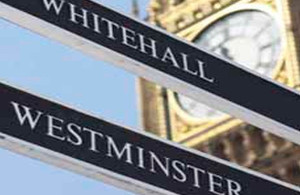A UK-wide exercise that simulates an outbreak of African swine fever (ASF) will take place this week to test government contingency plans to contain and eliminate the disease in the event that it reached the UK.
ASF is a disease which affects pigs and wild boar and in recent years it has been circulating in parts of Asia and Africa, leading to the deaths of millions of pigs worldwide and causing significant disruption to the meat trade. The disease has also spread to parts of Eastern Europe through the movement of wild boar. Whilst there has never been an outbreak of ASF in the UK, the simulated exercise is an important part of testing the UK’s plans to prevent and respond to a potential future outbreak.
ASF poses no risk to human health as it only affects pigs and related animals. ASF spreads between animals, but the virus can also be transmitted through feeding infected meat to other animals. The government currently deems the risk of the virus being brought into the UK in animal products from affected countries, including from illegal imports, to be at ‘medium’ risk.
The exercise, which is named ‘Exercise Holly’, will see the Animal and Plant Health Agency, Defra, Scottish Government, the Welsh Government and the Department of Agriculture, Environment and Rural Affairs in Northern Ireland (DAERA-NI) working together to test the government’s contingency plans to respond to a national outbreak of ASF, enabling teams from across the country to work together to assess the UK’s state of readiness to manage such an outbreak.
In a joint statement, the UK’s four Chief Veterinary Officers said:
The risk of African swine fever arriving in the UK is ever present and would have a devastating impact on our pigs and pig keepers if it ever reached our shores. We regularly test our contingency plans in this way to ensure that we are ready to respond to potential future disease outbreaks.
Everyone can do their bit to help stop animal diseases spreading to this country through simple actions such as not bringing any pork products back to the UK and disposing of leftovers and food waste in secure bins that wildlife cannot access.
The exercise will help improve the UK’s animal disease response capabilities through testing plans, instructions and the structures employed in managing an outbreak.
ASF poses no risk to human health as it only affects pigs and related animals. Everyone can help to stop the spread of ASF to the UK by doing the following:
- If you have visited ASF-affected areas in Europe, or elsewhere in the world, you must not bring any pork or pork products back to the UK.
- Disposing of leftovers or food waste in secure bins that pigs or wildlife cannot access.
- Farmers, the public and members of the food industry should practise high biosecurity standards, including never feeding catering waste, kitchen scraps or meat products to pigs which is illegal and can spread the disease.
The Government continually monitors disease outbreaks around the world to assess whether there may be risks for the UK and takes action to limit the risk of the disease reaching our shores.
A lessons identified report will be published after the exercise, with any improvements implemented to strengthen our national contingency plans.
The virtual exercise starts on Thursday 22 July and will conclude on Friday 23 July.
For more information on ASF, visit our guidance and control strategy for the disease.
For more information about the various animal disease outbreak contingency plans, visit each Governments’ exotic disease pages in England, Wales, Scotland and Northern Ireland.
